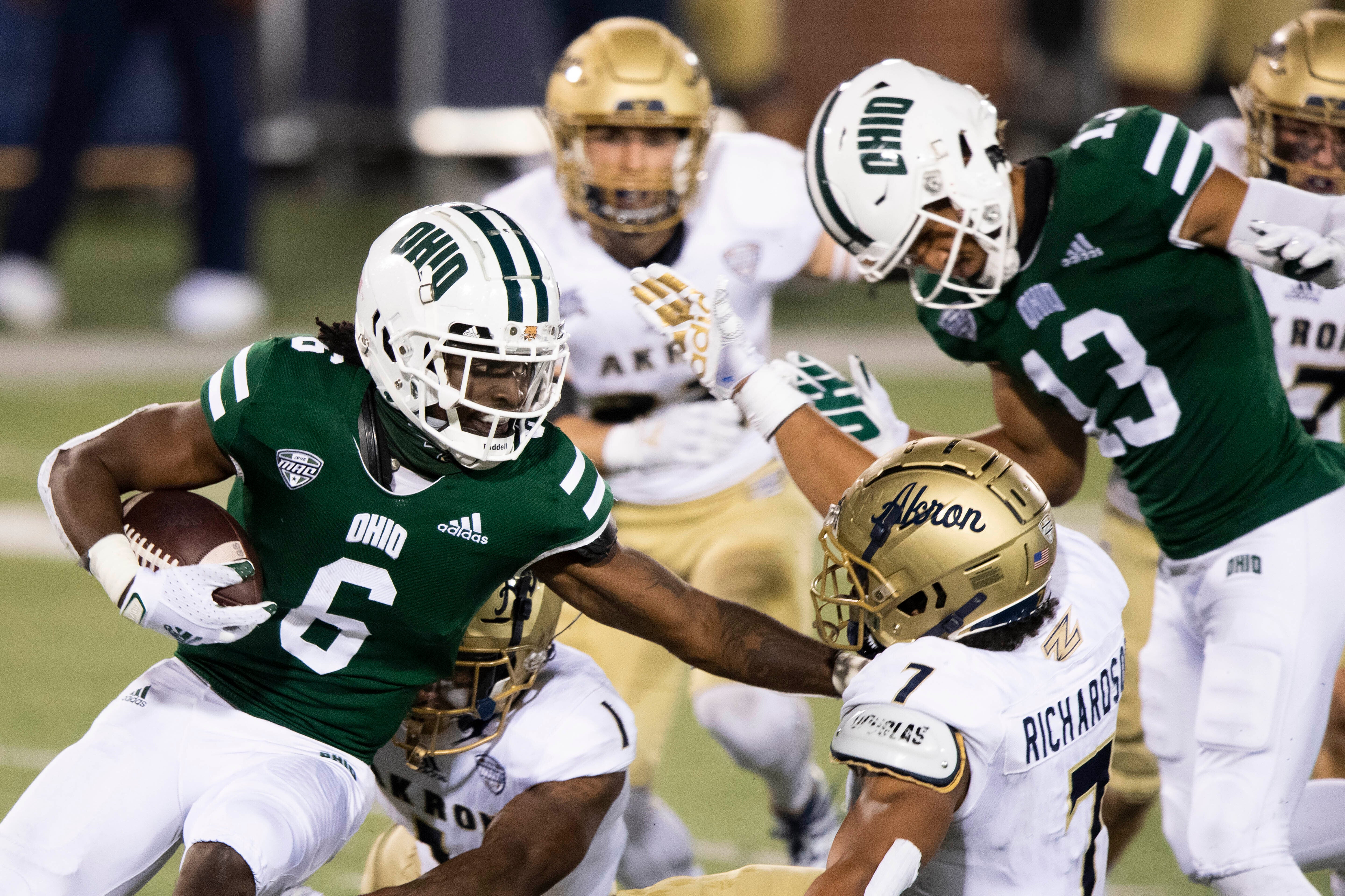NCAA voices concern on student-athlete performance bets
An NCAA official is voicing concern over sports betting on the performance of individual student-athletes and suggesting that gambling regulators consider restrictions on such wagers to protect the integrity of the games

Your support helps us to tell the story
From reproductive rights to climate change to Big Tech, The Independent is on the ground when the story is developing. Whether it's investigating the financials of Elon Musk's pro-Trump PAC or producing our latest documentary, 'The A Word', which shines a light on the American women fighting for reproductive rights, we know how important it is to parse out the facts from the messaging.
At such a critical moment in US history, we need reporters on the ground. Your donation allows us to keep sending journalists to speak to both sides of the story.
The Independent is trusted by Americans across the entire political spectrum. And unlike many other quality news outlets, we choose not to lock Americans out of our reporting and analysis with paywalls. We believe quality journalism should be available to everyone, paid for by those who can afford it.
Your support makes all the difference.An NCAA official voiced concern Thursday over sports betting on the performance of individual student-athletes, and suggested that gambling regulators consider restrictions on such wagers to protect the integrity of the games.
Speaking at the Sports Betting USA 2020 online seminar, Naima Stevenson-Starks, the NCAA's vice president for law, policy and governance, expressed concern about so-called proposition bets involving college athletes.
This type of bet concerns whether a given player will or won't surpass a certain threshold during a game, like whether a quarterback will throw 3 touchdowns or whether a running back will rush for 100 yards.
“Unlike the professional leagues, we are now talking about student-athletes attending class with people who may be betting on their efforts on the field or the court,” Stevenson-Starks said. “That's a concern. If you can think about missing a field goal or a free throw that might make the difference in a result, that's not the most settling thought.”
The NFL expressed similar concern about prop bets on its own players a few years ago. But NFL player props are a much larger segment of the sports betting industry than those on college players, something Stevenson-Starks acknowledged.
A survey Thursday of leading U.S. sportsbooks found little in the way of college player props, although they were more readily available on unlicensed offshore sites that are beyond the reach of U.S. regulators.
A spokeswoman for DraftKings said its college props usually involve which team scores first or last, and how many points a team will score. The lone game listed on the site for Thursday, the Colorado State-Boise State football game, did not offer bets on any individual player. The Golden Nugget sports betting site also did not offer player props on that game.
FanDuel also said its college props market is small.
Legal sports betting is quickly spreading in the U.S. With six additional states approving or expanding sports betting in this month's elections, more than half the country is poised to have legal sports betting by the end of next year.
New Jersey is in the process of removing its restrictions on college sports betting to allow bets on New Jersey teams and all games played in the state.
The NCAA's concern over player bets resonated with at least one state gambling regulator participating in Thursday's seminar. Cathy Judd-Stein, chairwoman of the Massachusetts Gaming Commission, said one of the things her state will consider in any future legislation to legalize sports betting is “the safety of amateur athletes to protect them against exploitation.”
Stevenson-Starks also voiced renewed support for federal regulation of sports betting that would replace the current system of state-by-state supervision. A push to enact such a law soon after a U.S. Supreme Court decision in 2018 that cleared the way for all 50 states to offer sports betting has languished in the 2 1/2 years that followed.
A federal law “would be the most desirable. I don't think the momentum is there for that to be resurrected, but it is something that should be on the radar,” she said. “The state-by-state approach is more difficult for an institution like the NCAA.”
___
Follow Wayne Parry at http://twitter.com/WayneParryAC